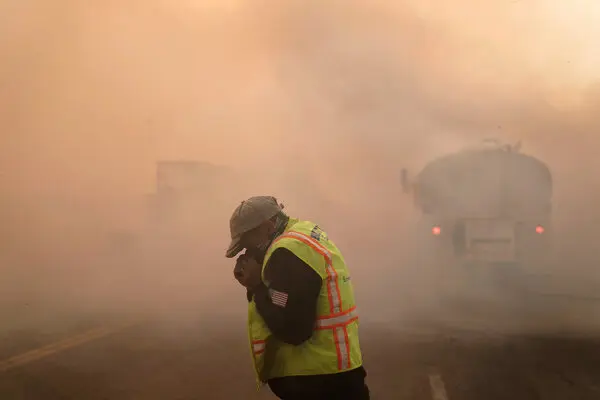By The North Journals
Jimeta, the bustling commercial hub of Adamawa State, is grappling with a hidden environmental crisis: the link between air pollution and rising urban temperatures. A recent study published in the International Journal of Humanities Social Science and Management reveals that pollutants emitted largely from vehicles are directly influencing the heat felt in the city.
The research, conducted by Saadatu Musa Yerima, Ibrahim Abubakar Adamu, Aminu Ahmed Marafa, and Enoch Buba Badgal of Adamawa State Polytechnic, examined the relationship between key air pollutants Carbon Monoxide (CO), Nitrogen Dioxide (NO₂), and Sulfur Dioxide (SO₂) and ambient temperatures across four busy locations in Jimeta.
According to the authors, “CO₂ appears to have the most significant and relatively stronger relationship with the dependent variable [temperature], both in terms of statistical significance and the percentage of variance explained”. In contrast, Nitrogen Dioxide showed only a moderate link, while Sulfur Dioxide had the weakest influence.
Six-Month Survey Across Seasons
The researchers gathered data for six months, covering both dry and wet seasons. Using portable air monitors and thermometers, they tracked daily pollution levels in high-traffic areas such as Jimeta Modern Market, Kasuwan Gwari, Mubi Roundabout, and the Shopping Complex Gate.
Their findings suggest that pollutants contribute more strongly to temperature changes during the dry season. “While other pollutants contribute less during the dry season, the pollutants were insignificant during the wet season,” the study notes.
Urban Heat and Vehicle Emissions
The team links the problem largely to road transport. “Motor vehicles are a major source of greenhouse gas emissions, particularly carbon dioxide (CO₂). These emissions contribute to the accumulation of greenhouse gases in the atmosphere, leading to global warming and increased average temperatures over time,” the researchers explain.
This is not just an environmental concern but also a public health issue. Epidemiological studies cited in the report show a rise in hospitalizations, respiratory problems, and reduced life expectancy associated with exposure to polluted air.
Call for Action
To tackle the crisis, the researchers recommend government and private partnerships to introduce mass transit buses at strategic locations to reduce traffic-related emissions. They also propose relocating some commercial centers from the city’s congested heart to less densely populated areas.
The authors emphasize public awareness, warning that residents, animals, and vegetation are already exposed to unsafe levels of pollutants. “Humans, animals, and plants are exposed to high levels of these pollutants which may be of potential health concern,” they caution.
What’s Next?
The study concludes with a call for more long-term monitoring of pollutants across different seasons, noting that the current data highlights only part of the problem. It also underscores the need for policies to check the rising number of poorly maintained vehicles contributing to Jimeta’s worsening air quality.
📌 For further reading and detailed data tables, readers can access the full research paper in PDF Assessing the relationship of Air Pollutants to Ambient Temperature in Jimeta Metropolitan Area of Adamawa State, Nigeria


